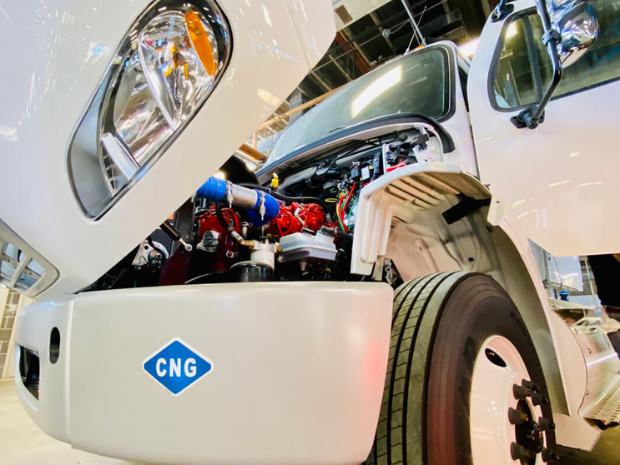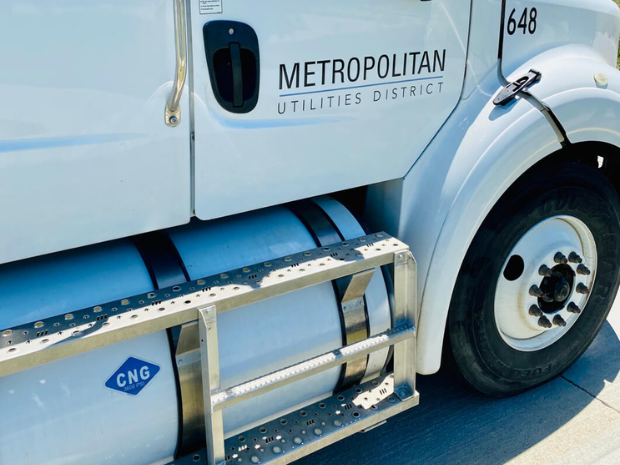WHAT IS AN EMERGENCY?
Gas leaks, odor of gas, damaged lines, carbon monoxide symptoms and water main breaks are all considered emergencies.
If you smell gas, do not attempt to locate the leak. Instead, leave the house or building right away. Do not use any electrical switches, appliances, lights, telephones, or mobile devices, as an electrical charge could create a spark. When you are in a safe place, call M.U.D.'s emergency hotline at 402.554.7777 or 9-1-1.
If someone is showing symptoms of carbon monoxide poisoning, call 9-1-1 immediately. Symptoms are like the flu.
If you have a water-related emergency, call 402.554.7777. Our personnel are ready to assist you 24/7. When in doubt, call us immediately.
Learn More¿QUÉ ES UNA EMERGENCIA?
Las fugas de gas, el olor a gas, las tuberías de gas dañadas, los síntomas de monóxido de carbono y roturas en las tuberías principales de agua son consideradas emergencias.
Si huele a gas, NO trate de localizar la fuga/escape. Al contrario, abandone la casa o el edificio inmediatamente. No utilice los interruptores eléctricos, electrodomésticos, luces, teléfonos o equipos móviles, ya que una carga eléctrica podría provocar una chispa. Una vez que se encuentre en un lugar seguro, entonces llame a la línea directa de emergencia de M.U.D. al 402.554.7777 o al 9-1-1.
Si alguien tiene síntomas de envenenamiento causados por el monóxido de carbono, llame al 9-1-1 inmediatamente. Los síntomas son como los de la gripe/catarro.
Si tiene una emergencia relacionada con el agua, llame al 402.554.7777. Nuestro personal está listo para ayudarle, 24/7. Cuando dude o crea que hay una emergencia, llámenos de inmediato.
Aprende MásNatural gas is a domestic resource in abundant supply that can help the United States reduce its dependence on foreign oil.
About 98 percent of the natural gas we use comes from right here in North America.
Conversely, 70 percent of the oil we use is imported. Every gallon equivalent of natural gas used in vehicles is one less gallon of petroleum that has to be imported. Natural Gas offers the immediate opportunity to displace material amounts of oil used in transportation.
Each year natural gas reserves are being discovered in North America. Predictions indicate the U.S. has enough natural gas to last for at least 120 years.
Download 2019 Compressed Natural Gas rebate form.
For a complete list of CNG station prices in the United States visit: http://www.cngprices.com/station_map.php
Although CNG combustion does produce greenhouse gases, it is a more environmentally clean alternative and it is much safer than other fuels in the event of a spill (natural gas is lighter than air, and disperses quickly when released).
CNG can reduce CO2 emissions up to 30 percent and toxic pollutants by up to 90 percent.
With stricter emission requirements from the EPA, natural gas can help meet these new demands.
CNG is made by compressing natural gas (which is mainly composed of methane [CH4]) to less than 1 percent of its volume at standard atmospheric pressure. It is stored and distributed in hard containers at a normal pressure of 200–220 bar (2900–3200 psi), usually in cylindrical or spherical shapes.
CNG is used in traditional gasoline internal combustion engine cars that have been converted into bi-fuel vehicles (gasoline/CNG). Natural gas vehicles are increasingly used in Europe and South America due to rising gasoline prices.
In response to high fuel prices and environmental concerns, CNG is used in pickup trucks, transit and school buses and trains. CNG typically costs 50 percent less than gasoline and prices have remained steady over the past several years.
Since 2006, CNG has averaged $1.40 per gallon less than gasoline – a savings of $600 annually for the average commuter.

Commercial Fleets
There are currently over 300 commercial vehicles in the Omaha metro that run on CNG. They are of all vehicle classes from light-duty sedans to heavy-duty tractors. GMC Savana, Chevy Express, and the Ford E-Series are examples of commercial vans that are currently running on CNG locally. There are many benefits of operating natural gas vehicles including lower maintenance costs, lower fuel cost and substantial decrease in greenhouse gas emissions compared to petroleum-based fuels.
M.U.D. has a ‘CNG Fleet Fund’ that companies may apply for to get assistance on the incremental cost of new CNG vehicles. To apply for these funds or further information regarding CNG vehicles, call 402.504.7185.

Heavy Duty Fleets – (Buses, Semi-Tractors, Refuse)
CNG can power almost any size vehicle without losing any power. Transit buses, school buses, refuse trucks, concrete mixers and semi-tractors are examples of heavy duty vehicles that are converting to CNG at a high rate. 1 of every 5 transit buses sold today in the U.S. is running on CNG. Besides the obvious fuel savings and environmental benefits, one of the largest advantages of running CNG is the noise reduction. The average natural gas engine runs 10 decibels quieter than a comparable diesel engine.
This is especially beneficial to refuse trucks that service residential and downtown areas. Tractor-trailers have also seen an increase in production especially as further infrastructure begins to be developed strategically throughout the region. These class 8 trucks can receive their return on investment at a higher rate due to the low mpg and high miles that they run annually.
Contact the District’s NGV Specialist or call 402.504.7185 with any questions regarding CNG vehicles.






